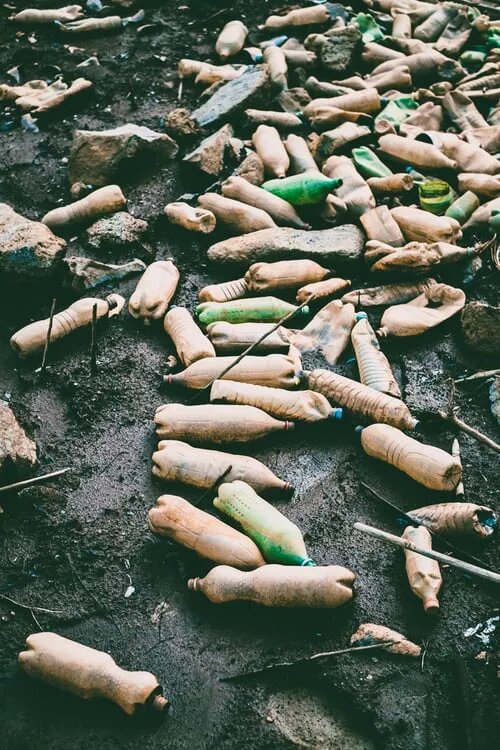In the area of Social Solidarity Economy (SSE), sustainability should be of prime importance since an alternative economy can only be worthy of its name if it develops a different relationship with the environment. This can be achieved in two ways; either by developing activities that promote sustainable development or by taking into account sustainability criteria in the development of any economic activity.

In the area of Social Solidarity Economy (SSE), sustainability should be of prime importance since an alternative economy can only be worthy of its name if it develops a different relationship with the environment. This can be achieved in two ways; either by developing activities that promote sustainable development or by taking into account sustainability criteria in the development of any economic activity.
Typical examples of activities that involve SSE enterprises and consider sustainability as their primary purpose are the following:
- The production of electric energy from renewable energy sources (RES), which contributes to tackling the climate crisis
- The restoration, preservation and promotion of areas, settlements and landscapes that are part of our natural, cultural and architectural heritage.
- The saving and rational utilization of water resources
- The production of safe agricultural products and food without the reckless use of pesticides, which contributes to the protection of biodiversity and sustainability.
- The environmentally sound management of waste, which primarily means not generating waste in the first place, followed by their reduction, re-use and recycling. These activities combined in an integrated approach can help to protect the environment and public health by reducing the negative impacts of waste generation and management, mitigating the impact of use of resources and improving their efficiency.
In the second category, we can look at trade services as an example. Utilizing local products means local production and consumption but also the ability to control local resources such as water, wind and other raw materials. Thus, it is possible to locally manage potential waste, something that is often not possible with certain fair-trade products coming from other continents that could be produced locally and handled with a smaller negative environmental impact.
A common issue for all SEEs (and other) enterprises is packaging. Plastic has now flooded our daily lives and yet the large chain of extraction, processing and transportation of raw materials to the country of plastics manufacturing (e.g. packaging) seems to be incomplete as following use, collection and reuse-recycling is problematic. The halt of plastics import from China in early 2018 has made the problem of material management globally known, prompting the EU to hasten legislation on the "circular economy", aiming for plastic materials to complete their cycle within Europe. As the EU sets its bar high, it has rushed to legislate more measures in order for EU countries to reduce the amount of plastic waste they continue to produce and to limit their catastrophic effects on the environment, climate and public health. From this point of view, when it comes to a SEE enterprise, we need to ask ourselves if our responsibility is limited, for example, to supplying a coffee brand of fair and solidarity trade when the product is used in a disposable plastic glass. Similarly, should we introduce a bioplastic bag as an ecological innovation to a consumer cooperative when we know that bioplastics require chemical treatment for its management which does not exist in Greece?
Likewise, the trading of wild herbs such as mountain tea, oregano and mushrooms that are not cultivated but are illegally harvested from Greek nature, although it familiarizes the purchasing public with Greek nature, does not constitute a good environmental practice.
Let us focus a little more on the relation between rural tourism and the protection of biodiversity. Can we rethink rural or nature tourism? In this context, biodiversity is of particular importance, but we must ask ourselves if we can approach, as a tourist destination, all those species of flora and fauna that constitute valuable intergenerational capital.
In 2011, Law 3937 on Biodiversity Conservation was adopted. According to it, collection, cutting, eradication, possession, marketing, damage, destruction and transportation of specimens of endemic species (flora and fauna) is prohibited under certain conditions. The Ministry of the Environment is responsible for developing guides to identify the main species of flora, fauna and other groups of organisms that need to be protected. Thus, we can understand that those species of biodiversity that are rare, endemic and endangered according to the Guides and Red Lists (here and here) should not "contribute" in any way to a tourism services precisely to avoid any potential and illegal harvesting, collection, cutting, eradication, damage, destruction, etc. Success in preserving biodiversity is vital to economic and social development. The value of an organism is derived from the combination of the intrinsic value of the organism itself, its value within the ecosystem, and its interaction with it. Therefore, motivation for biodiversity conservation results from the understanding of this value and of the consequences of its loss.
In other words, the consideration of sustainability criteria applies to all SEE enterprises whether they are active in the field of sustainable development or not and requires consideration of all their operating parameters. It is important to know which environmental practices are good and to evaluate our environmental impact. The term “with respect to the environment”, means a conscious compliance with good environmental practices, that is, that the agents know and understand their function, their environment, the events surrounding them and, as far as possible, have a sense of their place and their importance to the world and the impact of their actions.